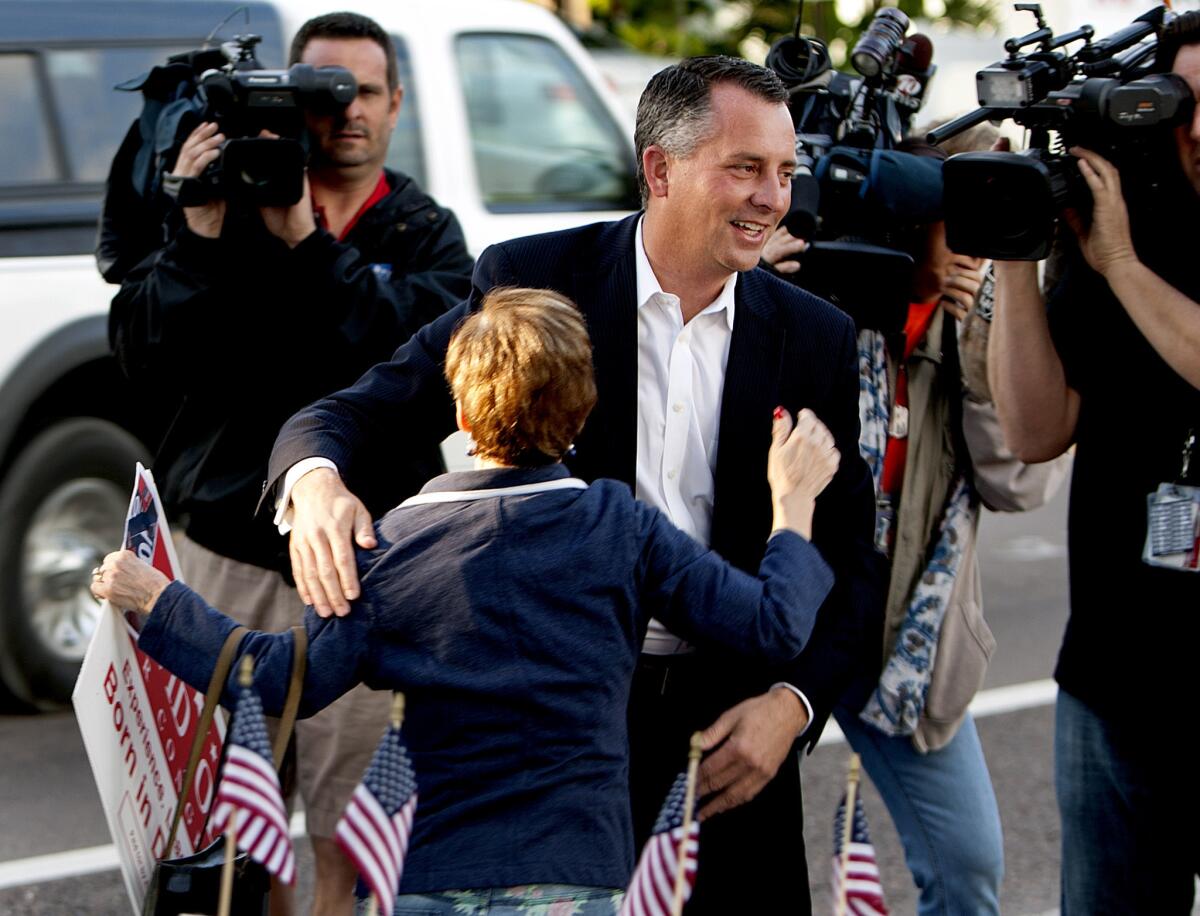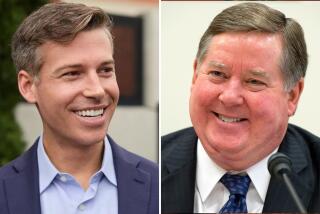More than $12 million later, Florida voters deliver verdict

WASHINGTON -- After a deluge of television ads, robocalls and mailers fueled by more than $12 million in campaign spending, only one thing is certain about today’s special congressional election in Florida: The results will be over-interpreted.
Public polls have shown Democratic candidate Alex Sink clinging to a very small lead over Republican David Jolly. But as of Monday, with more than 125,000 mail-in ballots and early votes cast – probably 60% to 70% of the total vote – registered Republicans have outnumbered registered Democrats by a little more than 5,000 voters.
With those conflicting pieces of evidence in hand and the difficulties of predicting final turnout in an off-cycle election, neither side seems confident. Adding to the complications, a Libertarian candidate, Lucas Overby, could pull votes from either candidate.
Despite all that, the history of special elections suggests that whichever side wins will make sweeping claims about implications for November’s midterm elections. It also suggests that few of those predictions will prove fully accurate.
“Whether we win it or lose it, the special elections aren’t too predictive for either side going forward,” National Republican Congressional Committee Chairman Rep. Greg Walden (R-Ore.) told reporters Tuesday. “But they do give a test bed of issues and how they play out.”
“You can test messages, and you can test strategies, and you can test your theories on voter turnout and ID,” Walden added.
Indeed, both parties saw the special election as a good opportunity to try out campaign themes they hope to stress this fall. The district, which covers a stretch of the Gulf Coast running north from St. Petersburg, has an electorate that is whiter and older than the national average, but as one of the country’s few swing congressional districts, it provides a good market for trying out attacks and defenses. The successful ones probably will be reused in key races this fall, including some of the contests that could determine control of the Senate.
In part because it is such an attractive test market, outside spending – nearly $9 million – far exceeded what the two candidates spent, making the three-month race about six times more expensive than the average full-year House campaign.
The topic in the spotlight all along has been President Obama’s healthcare law, which Jolly advocates repealing. He and his allies, including GOP campaign committees, the Chamber of Commerce, the National Rifle Assn. and conservative “super PACs,” pounded relentlessly at Obamacare during the campaign, hoping to stimulate a large turnout of conservative voters.
Sink and her allies, including Democratic campaign committees, environmental groups, unions and women’s advocacy groups, pushed back with ads saying that the health law should be fixed, not abandoned. They accused Jolly of holding views that would be too conservative for the district’s middle-of-the-road voters, including wanting to overturn Roe vs. Wade, the Supreme Court decision that legalized abortion, and opposition to laws mandating pay equity for women.
Both sides already have tipped their hands about what they’ll say if they lose. Democrats have stressed that the district’s voter registration leans Republican, although Obama carried it in both 2008 and 2012. Republican operatives have privately criticized Jolly, noting that he was not the party’s first choice as its candidate.
Twitter: @DavidLauter
More to Read
Sign up for Essential California
The most important California stories and recommendations in your inbox every morning.
You may occasionally receive promotional content from the Los Angeles Times.











